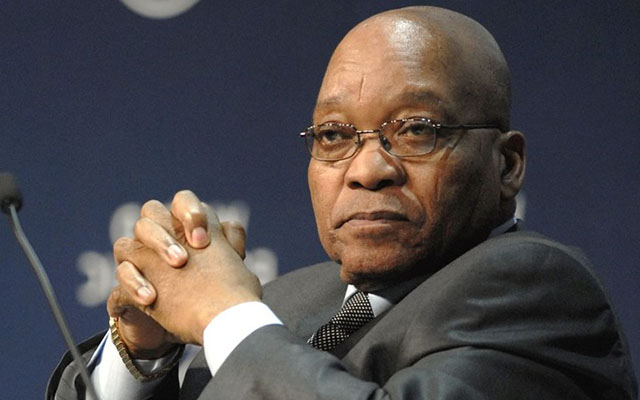Zuma victory is triumph for African liberation parties


Jacob Zuma
Bevan Musoko Correspondent
As has become the tradition, South African President Jacob Gedleyihlekisa Zuma survived a record eighth vote of no confidence motion in Parliament on August 8, 2017, with 198 votes against the opposition’s 177 votes.
Had Zuma lost the vote, his presidency would have come to an immediate, unceremonious screeching end.
The motion was sponsored by the right-wing Democratic Alliance led by Mmusi Maimane following a finding by that country’s Constitutional Court that Zuma had violated his oath of office.
This was the eighth attempt to oust the popular Zuma, who, as it turns out, has the proverbial nine lives of a cat.
Jacob Zuma assumed the South African presidency on May 9, 2009.
He had previously taken the reins of the governing ANC in December 2007 at the Polokwane conference.
Since then, he has faced several allegations ranging from corruption and abuse of office, chief among them being allegations of surrendering the Presidency’s executive authority to the shadowy and controversial Gupta family.
Zuma was previously a member of the South African Communist Party (SACP), where he briefly served on the party’s Politburo before he left in 1990.
It could be this background and his pro-nationalist policies that have landed him in trouble with white monopoly capital resident in South Africa. I will return to this issue later.
Zuma has faced several legal challenges in his political career.
In 2005, he was acquitted of raping a family friend, who is now late.
After that, he fought various corruption charges, which were eventually dropped.
Corruption charges were again raised against him over the upgrades at his rural home in Nkandla, resulting in a report by the then South African Ombudsman, Thuli Madonsela concluding that Zuma had unduly benefiter from the state-funded upgrades.
He was ordered to repay some of the funds to the state.
It may be inferred that Zuma could have differed with the then President Thabo Mbeki on ideological grounds as Mbeki was more oriented towards market economics as opposed to Zuma’s nationalist approach to economic management.
Zuma has cultivated an aura around himself as the grassroots people’s man, in the process using that populism to survive the many attempts at backstabbing his leadership of both the ANC and government.
It may be interesting to note that President Zuma has been reacting with a strong push towards nationalistic control of the South African economy following the several attempts to unseat him.
His sacking of Pravin Gordhan, the seeming darling of Western capital, on March 30, 2017 seemed to have rattled monopoly capital.
The late-night move caused a sharp drop in the value of the rand as investors reacted to contrived concerns that President Zuma would now have a free hand over Government finances.
There was scepticism over the appointment of Malusi Gigaba to replace Gordhan.
“The market will struggle to digest Gigaba. We think this is bad for the market and for SA”, said a market analyst, Peter Attard Montalto.
The undercurrent to be deducted from this statement is that Gordhan was considered the disciplined gatekeeper of Government finances against a run-away Zuma. It is pertinent to note that the attacks on Zuma, as the head of the oldest liberation movement in Africa, could easily be taken as an attack on the institution of the party that helped to liberate South Africa.
While President Zuma has his own documented excesses, it is inconceivable that the Democratic Alliance would want the ANC to continue as the South African governing party.
The growing popular calls for the nationalisation of South African mines, factories and land presents a significant challenge for white capital in South Africa. These growing calls are a contagion from the Zimbabwean experience, where the Zanu-PF Government successfully “nationalised” all land, in the process, displacing the white settler farmers.
It, therefore, follows that there are concerted efforts by the financial powers to manage the contagious effect from the “cardinal sin” committed by Zimbabwe.
The persistent attacks on Zuma, who leads the continent’s largest economy, may be seen in this light.
It may also be seen in the context of the Western powers attacks on the remaining liberation movements in the southern Africa region.
Zanu-PF needs no mention as it has been under siege for the past 17 years.
The other remaining liberation movements are Chama Cha Mapinduzi of Tanzania, Frelimo of Mozambique and Swapo of Namibia.
The intended punishment of Zuma is supposed to send a message to like-minded political parties against upsetting the interests of capital.
Liberation movements, by virtue of being mass parties which are representative of the broad mass of their peoples’ hopes and aspirations, are bound to invest heavily in the interests of their constituencies, hence the accusations of financial indiscipline.
Elitist and narrow capitalist interests would rather limit Government spending to keep the majority of people in poverty to be labour fodder for the capitalists.
In the long run, the South African scenario poses a significant challenge to all liberation movements in the region.
The ultimate aim being to dislodge them, and win the ultimate prize, which is unfettered access to the regions’ abundant natural resources.
While President Zuma has been subject to various allegations unbefitting of his office, it may be more appropriate that those issues be dealt with internally through ANC structures, as was the case with recall of former President Mbeki in September 2008.
The fact that the no confidence motion against President Zuma was sponsored by the DA, itself an unrepentant relic of apartheid, brought a whole new dimension to the matrix.
Could this be a historical rivalry between people’s wishes and elite capitalism?
Liberation movements in the region need to foster stronger ties, based on the strategic defence of national interests.










Comments